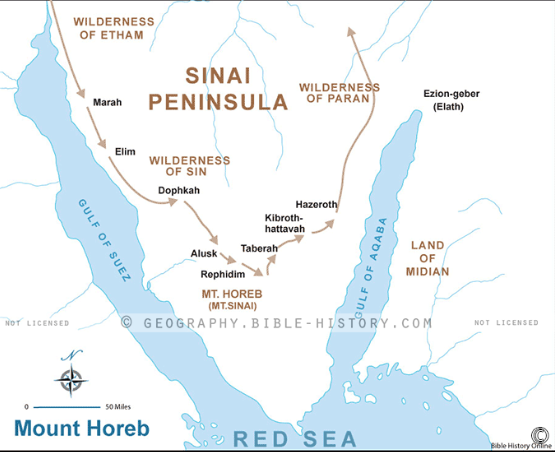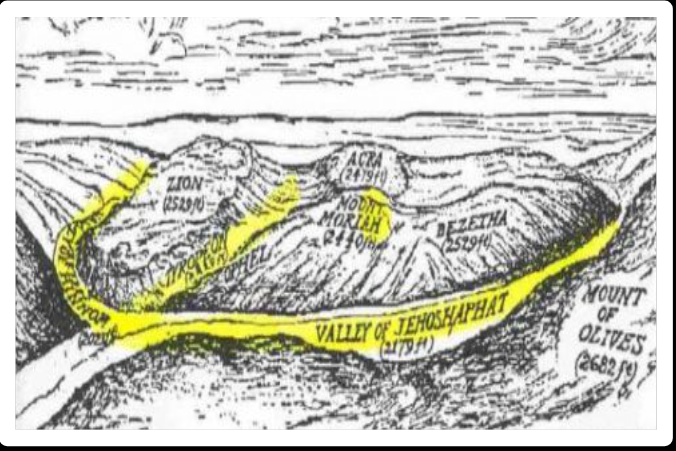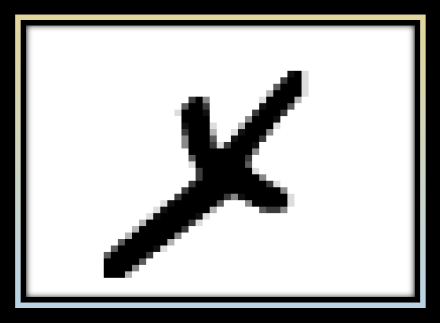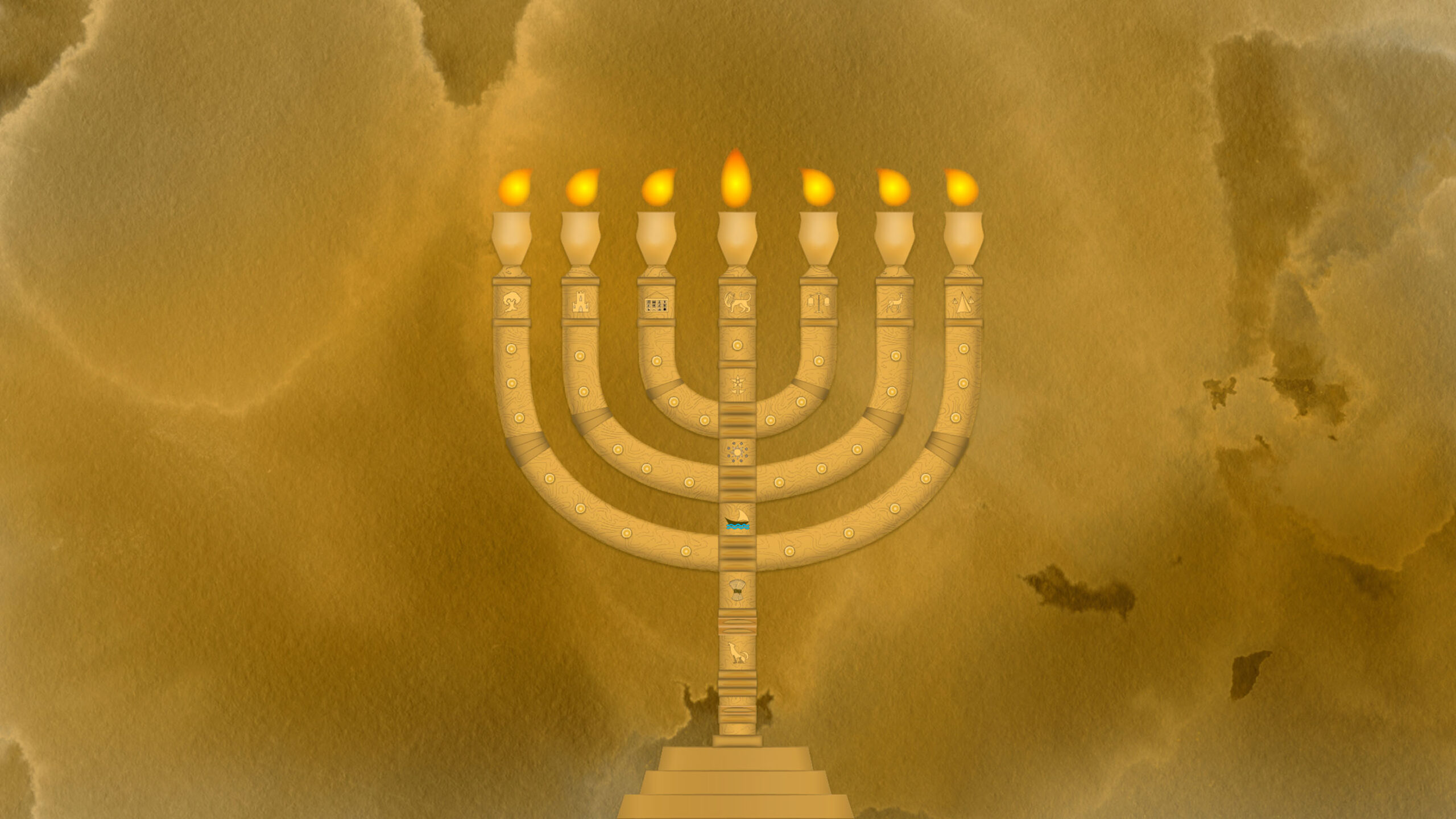V’Yiqra 25:1 – 26:2/26:3 – 27:34
Haftarah: Yirmeyahu (Jeremiah) 32:6-27 and
Yirmeyahu (Jeremiah) 16:19 – 17:14
Brit Chadasha: Lk. 4:16 – 21;
1 Corin. 7:21 – 24 and Gal. 6:7 – 10 and Jn. 14:15 – 21; 15:10 – 12
1st Jn.
Counting the Omer
ברוך אתה יהוה אלהינו מלך העולם אשר קדשנו
במצותיו וצונו על ספירת העומר
Baruch ata YaHaVah Elohenu melech haolam, asher
kidshanu b’mitzvotav v’tzivanu al sefirat ha Omer.
Blessed are You, Lord our God, King of the universe, who has sanctified us with His commandments, and commanded us concerning the counting of the Omer. Today is the 40th day of counting the Omer.
Parasha B’har
בְּהַ֥ר meaning “in, with or on the mount”
- Parasha Highlights:
- Mount Sinai
- The Shemitah/Sabbatical year
- The Yovel/Jubilee year
- V’Yiqra 25:1 – 7: “And YaHaVah spoke to Moses on Mount Sinai, saying, speak to the children of Israel, and say to them: ‘when you come into the land which I give you, then the land shall keep a Sabbath to YaHaVah. Six years you shall sow your field, and six years you shall prune your vineyard, and gather its fruit; but in the seventh year there shall be a Sabbath of solemn rest for the land (Shemitah) a Sabbath to YaHaVah. You shall neither sow your field nor prune your vineyard. What grows of its own accord of your harvest you shall not reap, nor gather the grapes of your untended vine, for it is a year of rest for the land. And the Sabbath produce of the land shall be food for you: for you, your male and female servants, your hired man, and the stranger who dwells with you, for your livestock and the beasts that are in your land—all its produce shall be for food.’”
- Every seventh year, the people of Israel were instructed to forgive debts owed by fellow Israelites, refrain from direct cultivation, and permit people and animals to harvest the free-growing crops that remained. The instructions concerning the Shemitah are mentioned in passages such as Exodus 21:2; 23:10–11; Leviticus 25:1–7; Deuteronomy 15:1–6; and 31:10–13.
- The purpose of the Shemitah was to allow the land to recover from agriculture, as well as to provide sustenance for the poor. The Shemitah was also meant to break the cycle of perpetual debt and poverty in which many people found themselves trapped (Deuteronomy 15:4, 11). This Sabbath year reflected God’s decision to rest on the seventh day of creation (Genesis 2:1–3). As with many religious concepts, there are different interpretations of the Sabbath year within each of the various sects of Judaism. (www.gotquestions.org/The-Shemitah)
Mt. Sinai
- YaHaVah spoke many of His oracles “on the mount” of Sinai. The mount of Sinai is also called Mt. Horeb. This mountain lies at the bottom of the Sinai Peninsula.
- The question for us would be, why did YaHaVah choose this particular location to impart His many instructions to the House of Israel through His prophet Moses?
- One answer is that this is where He made Himself known to Moses. According to one theory, Sinai and Horeb are the names of two eminences belonging to the same range; if this be so the range became prominent in the history of the Hebrews some time before the promulgation of the Law. When Moses led the flocks of his father-in-law to the desert and came “to the mountain of God, even to Horeb,” an angel appeared to him from a flaming bush, and then God Himself spoke to Moses, telling him that where he stood was holy ground (Ex. 3:1 – 12). (jewishencyclopedia.com)
- The general opinion of modern scholars is that the name “Sinai” is derived from the name of the Babylonian moon-god Sin. Ex. 19:16: “Then it came to pass on the third day, ( the 50th day) in the morning, that there were thundering’s and lightning’s, and a thick cloud on the mountain; and the sound of the trumpet was very loud, so that all the people who were in the camp trembled.” **Scripture tells us that atop Mt. Sinai, YaHaVah destroyed the moon-god Sin thereby establishing His own pre-eminence over this mountain and every pagan deity. YaHaVah would no longer be positioned lower on the mountain, i.e. the burning bush, rather He would be on the top of the mountain.
- Another answer is to recall Israels’ first Pesach was in the city of Rameses. The Pascal meal was eaten after sundown making it the first day of Unleavened Bread, Hag HaMatza. They began their flight from Egypt on Yom HaBikkurim, the appointed time of first fruit, their dough had not yet risen. This is when we begin the “omer” count. They traveled forty seven days to reach the base of Mt. Sinai. We know this because Ex. 19:10 tells us they had three days to prepare for receiving the Torah. The Torah would be given by YaHaVah on the fiftieth day, Shavuot.
- Shavuot, the 50th day, can also be referred to as the “Day of Covenant Confirmation.”
- One answer is that this is where He made Himself known to Moses. According to one theory, Sinai and Horeb are the names of two eminences belonging to the same range; if this be so the range became prominent in the history of the Hebrews some time before the promulgation of the Law. When Moses led the flocks of his father-in-law to the desert and came “to the mountain of God, even to Horeb,” an angel appeared to him from a flaming bush, and then God Himself spoke to Moses, telling him that where he stood was holy ground (Ex. 3:1 – 12). (jewishencyclopedia.com)
- The general opinion of modern scholars is that the name “Sinai” is derived from the name of the Babylonian moon-god Sin. Ex. 19:16: “Then it came to pass on the third day, ( the 50th day) in the morning, that there were thundering’s and lightning’s, and a thick cloud on the mountain; and the sound of the trumpet was very loud, so that all the people who were in the camp trembled.” **Scripture tells us that atop Mt. Sinai, YaHaVah destroyed the moon-god Sin thereby establishing His own pre-eminence over this mountain and every pagan deity. YaHaVah would no longer be positioned lower on the mountain, i.e. the burning bush, rather He would be on the top of the mountain.
- Another answer is to recall Israels’ first Pesach was in the city of Rameses. The Pascal meal was eaten after sundown making it the first day of Unleavened Bread, Hag HaMatza. They began their flight from Egypt on Yom HaBikkurim, the appointed time of first fruit, their dough had not yet risen. This is when we begin the “omer” count. They traveled forty seven days to reach the base of Mt. Sinai. We know this because Ex. 19:10 tells us they had three days to prepare for receiving the Torah. The Torah would be given by YaHaVah on the fiftieth day, Shavuot.
- Shavuot, the 50th day, can also be referred to as the “Day of Covenant Confirmation.”
- On this day, Shavuot, YaHaVah would reveal Himself to all Israel. Recall the four aspects to a covenantal agreement.
- 1.) Yahs proposal to Israel (Ex. 19:3 )
- 2.) Israel’s acceptance (Ex. 19:7)
- 3.) A covenant confirming meal (Ex. 24:4)
- 4.) Blood ratification (Ex. 24:8)
- The Book of the Covenant is made complete with the giving of the Ten Words.

- Shavuot has a Brit Chadasha counterpart found in Acts 1:3: “To whom He also presented Himself alive after His suffering by many infallible proofs, being seen by them during forty days and speaking of the things pertaining to the kingdom of God.” Acts 2:1: (ten days later) When the Day of Pentecost ( the fiftieth day) had fully come, they were all with one accord in one place and suddenly there came a sound from heaven, as of a rushing mighty wind, and it filled the whole house where they were sitting. Then there appeared to them divided tongues, as of fire, and one sat upon each of them. And they were all filled with the Holy Spirit and began to speak with other tongues, as the Spirit gave them utterance.”
- Shavuot (שָׁבוּעוֹת ) means “weeks,” and it refers to the Biblical Holiday celebrated on Sivan 6 (and 7 in the Diaspora) on the anniversary of the giving of the Torah at Sinai. It celebrates the completion of the seven-week Omer counting period between the third day of Passover (first fruit) and Shavuot.
- The season of Pesach is concluded with the appointed time of Shavuot.
- A similar pattern of years will be used for the Yovel, the Jubilee.
- V 8 – 10: “And you shall count seven Sabbaths of years for yourself, seven times seven years; and the time of the seven Sabbaths of years shall be to you forty-nine years. Then you shall cause the trumpet of the Jubilee to sound on the tenth day of the seventh month; on the Day of Atonement you shall make the trumpet to sound throughout all your land. And you shall consecrate the fiftieth year, and proclaim liberty throughout all the land to all its inhabitants. It shall be a Jubilee for you; and each of you shall return to his possession, and each of you shall return to his family.”
- In its paleo Hebrew form B’har, in, with or on [the] mount would read: The house was revealed from the beginning.
- There are many mountains of significance throughout scripture beginning with the mountain upon which Gan Eden rested. Personally, I never thought of Gan Eden being on a mountain rather, a flat space because it means a “walled garden.”
- Ezekiel 28:13-14: “You (HaSatan, the anointed cherub) were in Eden, the garden of Yah; every precious stone was your covering, sardius, topaz, and diamond, beryl, onyx, and jasper, sapphire, emerald, and carbuncle; and crafted in gold were your settings and your engravings. On the day that you were created they were prepared. You were an anointed guardian cherub. I placed you; you were on the holy mountain of Yah; in the midst of the stones of fire you walked.”
- The first of Yahs significant mountains was where Gan Eden was established. In my opinion this particular mountain had to be Mt. Moriah. I believe Mt. Moriah is where the Even Shetiyah (the foundation stone) was placed. This place is widely regarded as the “navel of the earth.”
- Foundation Stone: “The Even is the capstone of Creation. Under this stone God trapped the floodwaters of the abyss, the source of all the world’s water. All the world’s winds also originate from there. This stone sits under the Temple Mount. The stone is actually a piece of God’s Throne of Glory and inscribed with the Tetragrammaton. A chunk of the Stone was used by God to make the two tablets of the Ten Commandments. God moved this stone only once, to unleash the Flood of Noah’s day. (Contributed by Rabbi Geoffrey W. Dennis – Encyclopedia Mythica)
Mount of Olives
- The Mount of Olives plays its very own part with regard to this weeks parasha title, B’har, “On the Mount.”
- It’s widely believed that Abrahams potential sacrifice of his son Isaac occurred on the Mount of Olives. The mountain range of Moriah included Mt. Zion, Mt. Moriah and Mt. of Olives,.

- Abrahams son Isaac, a type and shadow of Yeshua, would have been sacrificed on the Mt. of Olives EXCEPT for the “ram caught in the thicket.” Ge. 22:13 tells us that this particular ram was the Aleph Tav “the” ram (אֶת־הָאַ֔יִל). It will have been the Aleph Tav ram who dies once for all for all mankind. This very same location is the site of Yeshuas death on the tree.
- Zech. 14:4: “And in that day His feet will stand on the Mount of Olives, which faces Jerusalem on the east. And the Mount of Olives shall be split in two, from east to west, making a very large valley; half of the mountain shall move toward the north and half of it toward the south.”
- The Mount of Olives records several crucial events:
- The Akeidah (Ge. 22:13)
- The “divine presence” departs (Ez. 11:23)
- Yeshuas’ death and resurrection (Acts 1:9)
Haftarah
- Yirmeyahu (Jeremiah) 32:6 – 27 The redemption of the Land.
- Jeremiah is instructed by YaHaVah to purchase land, a field, in Anathoth because he has the right of redemption. He pays seven shekels and ten silver pieces. He receives a Deed which he buries in a clay jar.
- 7 x 10 = 70, the number of years of the Babylonian captivity. The number of years that Israel failed to follow the commandment of Shemitah. Food for thought, 7 + 10 = 17 which is resurrection day.
Brit Chadasha
- 1st Corin. 7:21-24: “Were you called while a slave? Do not be concerned about it; but if you can be made free, rather use it. For he who is called in the Lord while a slave is the Lord’s freedman. Likewise he who is called while free is Mashiach’s slave. You were bought at a price; do not become slaves of men. Brethren, let each one remain with Yah in that state in which he was called.”
- Gal. 6:7-10: “Do not be deceived, Yah is not mocked; for whatever a man sows, that he will also reap. For he who sows to his flesh will of the flesh reap corruption, but he who sows to the Spirit will of the Spirit reap everlasting life. And let us not grow weary while doing good, for in due season we shall reap if we do not lose heart. Therefore, as we have opportunity, let us do good to all, especially to those who are of the household of faith.”
- In conclusion, this years parasha theme relates to the number fifty. The fourth of Yahs appointed times, Shavuot, occurs on the fiftieth day of the “omer count.”
- Recall the Matan Torah, the giving of the Torah, when observed, provides liberty to those who choose obedience. The same concept is seen on the fiftieth day of the Yovel, or Jubilee. People and property are liberated from bondage.
- James 1:25 reads: “But he who looks into the perfect law of liberty and continues in it, and is not a forgetful hearer but a doer of the work, this one will be blessed in what he does.”
- On one final note, there is one letter in the Hebrew Aleph Bet that bears the number fifty as its numerical value. It is the fourteenth letter, the Nun.
- The letter Nun is a picture of a seed, a mans seed. This letter means life, heir or continue.
- This letter graphically speaks to the man Yeshua who represents all these things. Yeshua is the life, He is certainly Yahs heir and through whom the “Rules of the Kingdom” will continue.
Parasha B’chukotai
בְּחֻקֹּתַ֖י meaning “in my statutes”
- V’Yiqra 26:3 – 27:34
- Parasha Highlights:
- Blessings and Curses associated with the Book of the Covenant and Book of the Law.
- This sidra explains very clearly what covenant fidelity is.
- Lev. 26:1 – 2: sets the stage for our sidra. “You shall not make idols for yourselves; neither a carved image nor a sacred pillar shall you rear up for yourselves; nor shall you set up an engraved stone in your land, to bow down to it; for I am YaHaVah your Elohay. You shall keep My Sabbaths and reverence My sanctuary: I am YaHaVah.”
- Our parasha begins in Lev. 26:3 – 13: “If you walk in My statutes and keep My commandments ( אֶת־מִצְוֹתַ֣י ) and perform them, then I will give you rain in its season, the land shall yield its produce, and the trees of the field shall yield their fruit. Your threshing shall last till the time of vintage ( אֶת־בָּצִ֔יר ) and the vintage shall last till the time of sowing (אֶת־זָ֑רַע ) you shall eat your bread to the full, and dwell in your land safely. I will give peace in the land, and you shall lie down, and none will make you afraid; I will rid the land of evil beasts, and the sword will not go through your land. You will chase your enemies, and they shall fall by the sword before you.
- Five of you shall chase a hundred, and a hundred of you shall put ten thousand to flight; your enemies (אֶת־אֹיְבֵיכֶ֑ם ) shall fall by the sword before you. For I will look on you favorably and make you fruitful, multiply you and confirm My covenant (אֶת־בְּרִיתִ֖י ) with you. You shall eat the old harvest, and clear out the old because of the new. I will set My tabernacle among you, and My soul shall not abhor you. I will walk among you and be your God, and you shall be My people. I am YaHaVah your Elohay, who brought you out of the land of Egypt, that you should not be their slaves; I have broken the bands of your yoke and made you walk upright.
- Our blessings come from YaHaVah when we choose to keep the “Rules o the Kingdom.”
- The curses that will fall upon us begins in Lev 26:14 – 16 which reads “But if you do not obey Me, and do not observe all these commandments, and if you despise My statutes, or if your soul abhors My judgments, so that you do not perform all My commandments, but break My covenant, I also will do this to you: I will even appoint terror over you, wasting disease and fever which shall consume the eyes and cause sorrow of heart. And you shall sow your seed in vain, for your enemies shall eat it.”
- Continue reading this chapter on your own so that you a have full understanding of what awaits those who choose to turn their back on Him.
- In conclusion, His blessings are eternal. They are found in the completed word and person of our Mashiach. Yeshua is the “living word,” the “living Word” is the Torah, the perfect Torah of liberty.
- Yeshuas’ work of salvation provides to every believer His gracious liberty, free from sin and death.
- Yeshua is all the letters of the Hebrew Aleph Bet. The 14th letter, the Nun, says it all, doesn’t it? He is the way, the truth and the life. No man comes to The Father except through Him. If we desire His liberty, we must also choose His Son and heir, Yeshua.
Haftarah
- Yirmeyahu (Jeremiah) 16:19 – 17-14
- The Torah portion primarily gives us the blessings and curses. Our Haftarah begins with “YaHaVah, my strength and my fortress, My refuge in the day of affliction, the Gentiles shall come to You from the ends of the earth and say, ‘surely our fathers have inherited lies, worthlessness and unprofitable things.’”
- What do you think the empty things are?
- Like the Aleph Tav “My Covenant” of our sidra, He tells us who is His hand and His strength. V 20 – 21: “Will a man make gods for himself, which are not gods? Therefore behold, I will this once cause them to know, I will cause them to know My hand ( אֶת־יָדִי ) and My might; אֶת־גְּבֽוּרָתִי ) ) and they shall know that My name is YaHaVah.”
- Judah has fallen into idolatry and 17:4 tells us “And you, even yourself, shall let go of your heritage which I gave you; and I will cause you to serve your enemies in the land which you do not know; for you have kindled a fire in My anger which shall burn forever.” **the curses**
Brit Chadasha
- Lk. 4:16-21: “So He came to Nazareth, where He had been brought up. And as His custom was, He went into the synagogue on the Sabbath day, and stood up to read. And He was handed the book of the prophet Isaiah. And when He had opened the book, He found the place where it was written ‘The Spirit of YaHaVah is upon Me, because He has anointed Me to preach the gospel to the poor; He has sent Me to heal the brokenhearted, to proclaim liberty to the captives and recovery of sight to the blind, to set at liberty those who are oppressed; to proclaim the acceptable year of YaHaVah.
- Then He closed the book, and gave it back to the attendant and sat down. And the eyes of all who were in the synagogue were fixed on Him. And He began to say to them, ‘today this Scripture is fulfilled in your hearing.’” **Do you believe His first advent occurred during a Jubilee?
- My personal opinion is yes, the 80th Jubilee to be exact. My reasoning is this; eight is the number of covenant. The first Aleph Tav of Scripture is the fourth word. This tells us that Yeshuas first advent will be at the 4000 year mark. Four thousand divided by 50, a jubilee cycle = 80.
- 1 Cor. 7:21: “Were you called while a slave? Do not be concerned about it; but if you can be made free, rather use it.”
- Gal. 6:7: “Do not be deceived, Yah is not mocked; for whatever a man sows, that he will also reap.”
- Jn. 14:15: “If you love me, keep my commandments.”
- Jn. 15:10: “If you keep My commandments, you will abide in My love, just as I have kept My Father’s commandments and abide in His love.”
- Read the entirety of 1st John.

